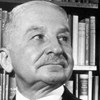Opium and morphine are certainly dangerous, habit-forming drugs. But once the principle is admitted that it is the duty of government to protect the individual against his own foolishness, no serious objections can be advanced against further encroachments. A good case could be made out in favor of the prohibition of alcohol and nicotine. And why limit the government’s benevolent providence to the protection of the individual’s body only? Is not the harm a man can inflict on his mind and soul even more disastrous than any bodily evils? Why not prevent him from reading bad books and seeing bad plays, from looking at bad paintings and statues and from hearing bad music? The mischief done by bad ideologies, surely, is much more pernicious, both for the individual and for the whole society, than that done by narcotic drugs . . . .
It is a fact that no paternal government, whether ancient or modern, ever shrank from regimenting its subjects’ minds, beliefs, and opinions. If one abolishes man’s freedom to determine his own consumption, one takes all freedoms away.
—Ludwig von Mises
Human Action
Insidious Monopolists
It has been suggested that, because the nominal price of first-class postage is about where it was in the late eighteenth century, Americans who complain about the proposal to increase postal rates are merely whining wimps who are lacking in historical perspective.
However, the real price of transportation (a key input in postal service) has plummeted over the last 200 years. In 1799 it took 53 days for an Army courier to travel from Detroit to Pittsburgh. Today the same trip can conveniently be made in minutes.
Likewise, the productive efficiency of the United States is vastly greater now than it was even a few decades ago. Given the plunge in transportation costs, joined with other technological improvements and a large increase in the scale of postal activity, the price of postage should have fallen dramatically.
Americans do not oppose postal-rate increases because of their ignorance of history. Rather, opposition to these increases grows from the correct perception that a legally protected monopolist such as the United States Postal Service can keep prices higher, and service inferior, to what they would be under competition.
Regardless of how today’s postal rates compare with rates in the past, opening the delivery of first-class mail to competition would lower rates still further while improving service.
—Don Boudreaux and George Selgin in a letter to The New York Times
Ortega’s Mass Man Redux
In his 1932 book, The Revolt of the Masses, the Spanish philosopher José Ortega y Gasset defined the average or mass man as one who “in face of any problem, is satisfied with thinking the first thing he finds in his head.” Ortega’s Mass Man is with us today in the person of the average man who believes what he reads in the latest headlines or sees on the network news.
He doesn’t want to be bothered with the details or further analysis of the facts. The Mass Man, according to Ortega y Gasset, “will tend to consider and affirm as good everything he finds within himself: opinions, appetites, preferences, tastes . . . . He has no wish to find the truth; he is intellectually a barbarian.” This man accepts no personal responsibility or punishment for what he does. He claims he cannot control his desires; he is a victim, so it is perfectly permissible to finagle food stamps, welfare, a job, or a corporate subsidy.
The Mass Man, Ortega y Gasset states, “does not want to give reasons or to be right, but simply shows himself resolved to impose his opinions . . . .” He has “decided to rule society without the capacity for doing so . . . . He wishes to have opinions, but is unwilling to accept the conditions and presuppositions that underlie all opinion.” The Mass Man of 1994 sees no connection between the rising crime rate and the teaching of relative morality.
Ortega y Gasset’s Mass Man’s ideas “hardly reflect in any way the reality to which they appear to refer and . . . . there is not even an attempt to adjust the ideas to this reality. [He] is trying to cut off any personal vision of reality. It does not worry him that his ideas are not true.” Such a man considers humans as ants or creatures that exist for the state without any inherent value.
According to Ortega y Gasset, “There is not to be found . . . a single group whose attitude to life is not limited to believing that it has all the rights and none of the obligations.” That perfectly describes the Mass Man of 1994.
The superficial, non-thinking Mass Man seems to be present and threatening not only in Ortega’s day and our own, but throughout recorded history. He appears whenever thinking man abdicates his responsibilities and relies on someone else to perform his duties.
—Charles Roda

